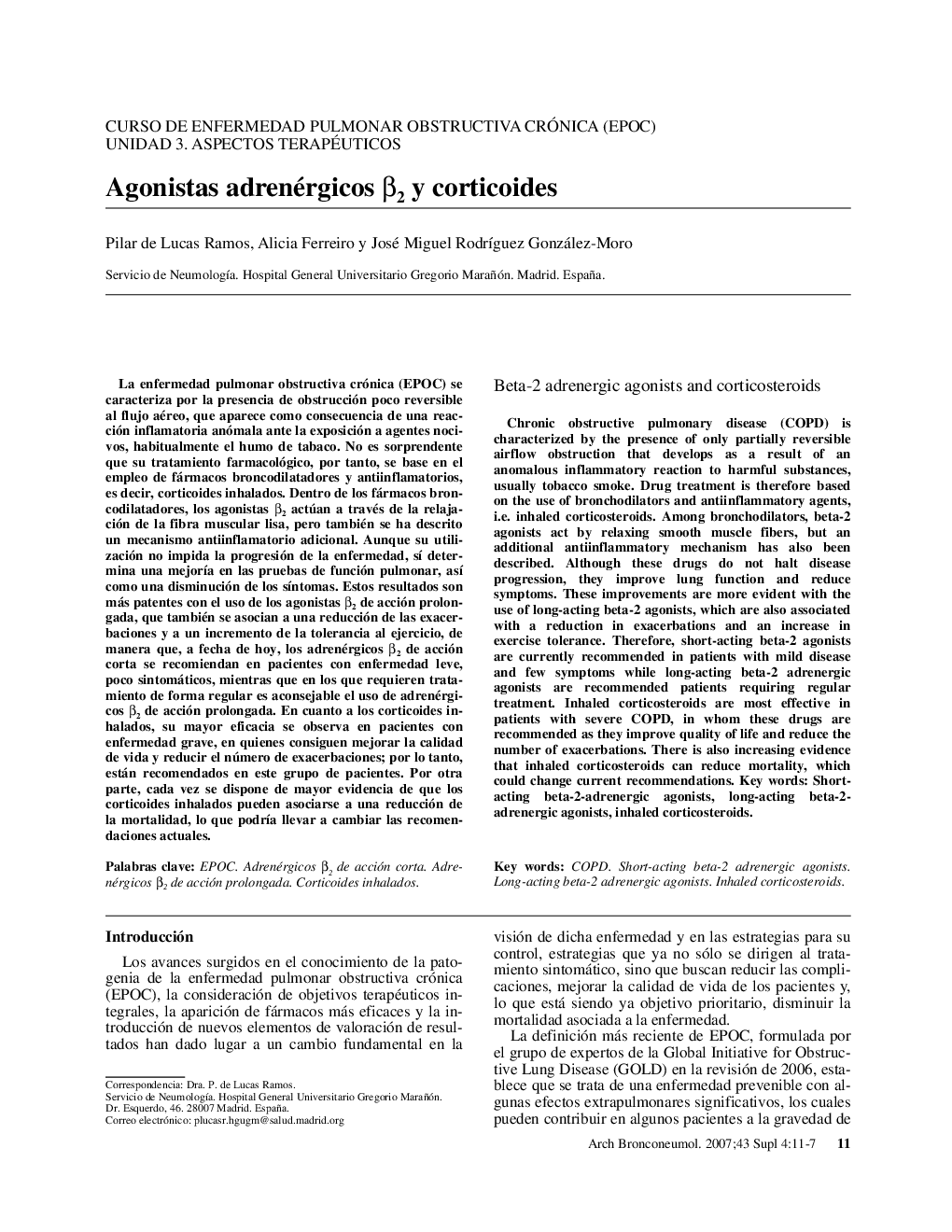| Article ID | Journal | Published Year | Pages | File Type |
|---|---|---|---|---|
| 4205025 | Archivos de Bronconeumología | 2007 | 7 Pages |
Abstract
Chronic obstructive pulmonary disease (COPD) is characterized by the presence of only partially reversible airflow obstruction that develops as a result of an anomalous inflammatory reaction to harmful substances, usually tobacco smoke. Drug treatment is therefore based on the use of bronchodilators and antiinflammatory agents, i.e. inhaled corticosteroids. Among bronchodilators, beta-2 agonists act by relaxing smooth muscle fibers, but an additional antiinflammatory mechanism has also been described. Although these drugs do not halt disease progression, they improve lung function and reduce symptoms. These improvements are more evident with the use of long-acting beta-2 agonists, which are also associated with a reduction in exacerbations and an increase in exercise tolerance. Therefore, short-acting beta-2 agonists are currently recommended in patients with mild disease and few symptoms while long-acting beta-2 adrenergic agonists are recommended patients requiring regular treatment. Inhaled corticosteroids are most effective in patients with severe COPD, in whom these drugs are recommended as they improve quality of life and reduce the number of exacerbations. There is also increasing evidence that inhaled corticosteroids can reduce mortality, which could change current recommendations.
Related Topics
Health Sciences
Medicine and Dentistry
Pulmonary and Respiratory Medicine
Authors
Pilar de Lucas Ramos, Alicia Ferreiro, José Miguel RodrÃguez González-Moro,
